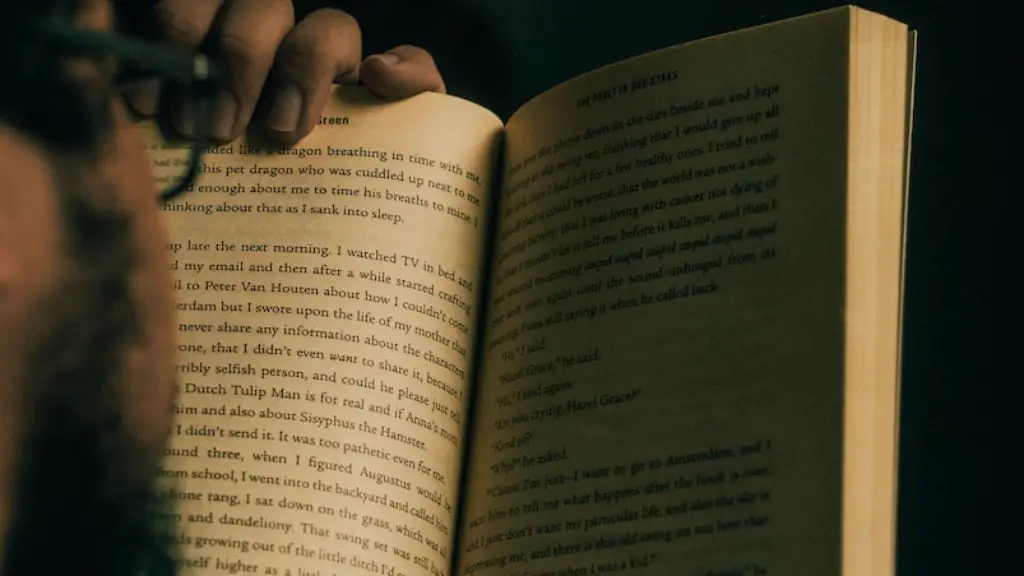Why Is Poetry Sometimes Hard To Write?
Writing poetry can become a difficult task for any writer. Whether you are a professional poet or just a newbie trying to get your feet wet, sometimes blank pageophobia can be overwhelming. No matter what kind of wordsmith one may be, crafting a poem can cause a lot of internal unrest. Some would even go as far as to say that writing poetry is one of the most difficult literary tasks out there. But why is it so?
The Uniqueness of Poetry
Since poetry expresses thoughts, ideas, and emotions through mesmerizing language, it has a unique structure that makes it hard to write. It merges elements of literature, styles, and traditional compositions that have been in use since time immemorial. When a poetic form or style is chosen, there is a certain expectation of a specific outcome. Every word and syllable that is carefully chosen must be carefully placed in the right order in order to get the desired effect.
This causes fear of not getting the sentiment right. This fear can be beneficial or not, depending on the artist. Some could see it as a restriction on creativity; while others could use it to help the writing process by achieving certain goals and bringing meaning to the poem.
The Inner Monologue
Another challenge about writing poetry is the inner monologue. All writers suffer from an inner critic that critiques their every move. It is also the same in poetry writing. This pessimistic interior can cause us to second guess our own ideas, second guess the artistic vision we have, and become all kinds of tangled up in our own thoughts, ideas, and doubts.
The inner critic can be a hindrance in the writing process—the artist has to succeed in making the critic an ally, or at least an appreciative audience that helps to refine the vision instead of destroying it.
The Rhyme Communication
One of the most difficult challenges of writing poetry is creating a sense of correctness to the words and structure. Connections must be made between syllables and words in order to create rhymes, rhythm and atmosphere. It isn’t an easy job to do, and it doesn’t come naturally to most people and it’s definitely something that takes practice.
Even when it isn’t necessary to use rhyme scheme, in order to convey emotions and meaning, the words still might need to be rearranged to create a sense of harmony and flow. To do this, one needs to understand and explore different structural elements that could be used, such as imagery, alliteration, metaphors, and tone.
Tackling Fear
This brings us to yet another difficulty of writing poetry—fear. Fear causes us to doubt ourselves, doubt our ideas, and halt our progress in our poetic journey. Fear can also make us feel insecure about our work and the ideas that we have.
In order to combat this fear, we must first recognize it and acknowledge it, before we can even address it. We must use our inner confidence and strength to tackle the fear, and still make progress in our work. Having an understanding of the writing process and reading in order to gain an understanding of other poets’ works can also be very beneficial in conquering fear and improving our own work.
Formatting Limitation
The formatting of poetry can also be difficult to work with. Poetry is often written in strict, specific formats that require specific set of rules and parameters. Every line with its own unique structure, words having to make specific sounds and flow in a certain way—it can be an arduous task to master a singular poetry style and perfect it.
A Different Language
Another issue with poetry is that it often requires knowledge of a different language in order to capture the full meaning and effect of the poem. Working with phrases and images from many different cultures and referencing certain histories can be a stumbling block for many writers.
It is not enough to simply read a book or two on this particular language, as it requires one to be more mindful of how the language connects to the culture and how it can be used in order to create a unique, powerful and meaningful poem.
Finding Inspiration
When we are feeling discouraged and uninspired, we can find ways to uplift our mood and find fuel that exists in the world around us. We can find our poetic voices by observing what is going on around us, wherever we may be.
We can start by paying attention to our surroundings, either by walking around or going on a field trip, and being aware of our emotional and physical responses to the sights, sounds, and smells. Nature is an amazing teacher and can provide us with a unique understanding. Reading and gaining knowledge from other writers is also essential in order to improve our skills.
Getting Creative
Finally, in order to create a successful poem, we must push ourselves out of our comfort zone and get creative; even if there are format restrictions, by being creative within that form, we can breakthrough and weather the storm of writing.
Being creative can help us access hidden needs and wants, while realizing strengths and weaknesses. It can also help us make connections that have never been made before. Creativity is necessary in order to bring new life and people to the words on paper.
Beating Mental Blocks
Mental blocks can be the bane of any writer’s existence, but if we recognize them when they come about, we can start to tackle them.
Regularly checking in with ourselves and being aware of what our minds are catering to—and then shifting our focus to the task at hand—will give us the required blocks in order to break barriers and elevate our work.
Challenge Yourself
Writing poetry can be enjoyable and liberating; however, there are constantly new challenges that can stand in our way.
Experiment, try different things, and don’t be afraid to push boundaries and break the ‘rules’. It’ll be worth the effort to get to the end goal and succeed in creating beautiful and meaningful words.
Finetune Your Skills
Developing skills such as playing with words, listening to songs and evaluating them to understand structure and feeling, as well as understanding punctuation and grammar, can help elevate the final product.
These techniques must also be willingly practiced and incorporated in order to help achieve a greater influence through the words written.
Trusting the Writing Process
Finally, trusting the writing process is another important technique when it comes to creating a successful and meaningful piece.
Nothing is ever perfect; mistakes will be made as well as successes. One must be convinced in the truth about them and appreciate what is to come—whether it be success, or failure.
It can be difficult not to give up when failure and frustration comes along. With failure, however, comes growth and insight. Learning from these experiences and keeping going will help build endurance and strength of character.



